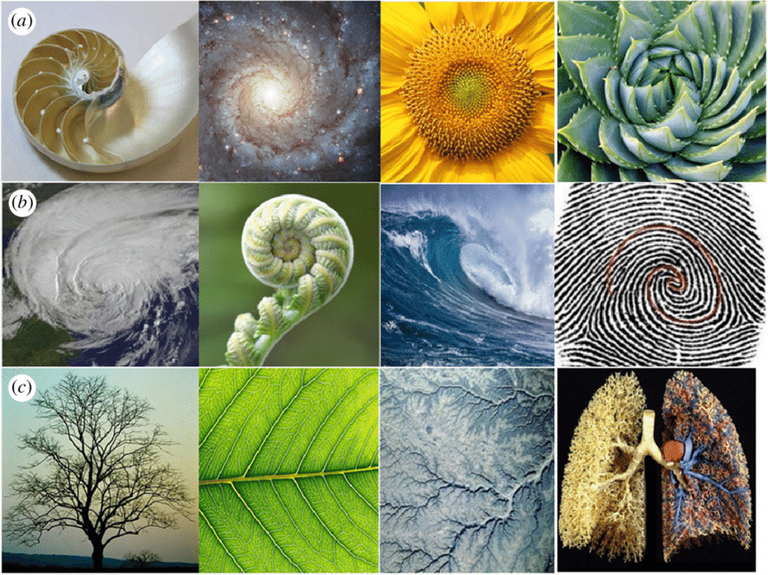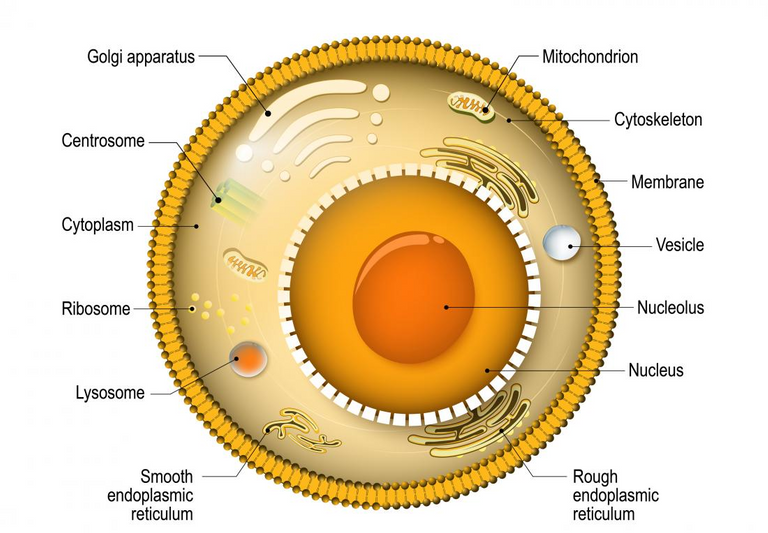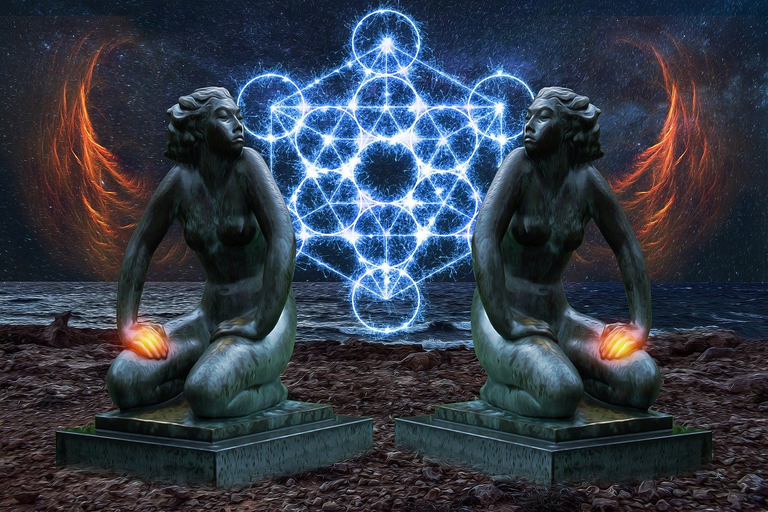What would you do with perfect knowledge of your body? If you knew exactly what caused that back ache or what ideal nutrients you needed right now or if that virus was trying to replicate in your system and exactly what was needed to combat it? How would you treat your body differently if you knew exactly what that drink of alcohol would do or that refined sugary treat? Would you exercise more and in the most optimal way for your specific body type and current ideal needs?
Would perfect information make us nearly omnipotent over our own bodies and if so, what could we do with that information? If we were feeling depressed, worried, angry, or stressed and in that moment could know the perfect path towards a more healthy state of mind, how would our daily lives change? How good could life become?
In that state, we’d be the master and commander of our own existence, the coordinator of our lives to choose the best possible version of ourselves. Needs could be made clear so if someone was living a less than ideal life, the things they needed for change would be obvious, and if they had access to those things already but chose to ignore them, that would also be clear.
What would evolution look like in this reality? More clearly, what would consciousness evolution look like? Awareness would be at mythical, nearly magical levels of clear seeing to the extent that everything would come down to choice. Given perfect knowledge of what we “should” do, what will we choose to do?
I think it’s possible everything is fractally connected.
"As above, so below" is a popular modern paraphrase of the second verse of the Emerald Tablet (a compact and cryptic Hermetic text first attested in a late eight or early ninth century Arabic source), as it appears in its most widely divulged medieval Latin translation:
Quod est superius est sicut quod inferius, et quod inferius est sicut quod est superius.
That which is above is like to that which is below, and that which is below is like to that which is above.
https://en.m.wikipedia.org/wiki/As_above,_so_below
We see fractals throughout nature as self-referential systems reproduce.

(Source)
What if we could extend our idea of perfect knowledge for the body inward (or “below”) down to the organs themselves and then further to the individual cells and their internal components and then maybe even further to the molecules and someday come to know the state of being for atoms and more.
The health of our bodies is directly connected to and derived from the health of the individual component parts of the body. What if we could know what's best for the nucleus, plasma membrane, cytoplasm, lysosomes and peroxisomes, cytoskeleton, endoplasmic reticulum, golgi apparatus, mitochondria, and ribosomes?

(Source)
What if we could extend our idea of perfect knowledge outward (or “above”) to include our family, our neighborhood, our city, our province, our state, and our world? What decisions would we make differently if we knew, with perfect knowledge, how it would help or harm others?

(Source)
Nash Equilibrium
In game theory, the Nash equilibrium, named after the mathematician John Forbes Nash Jr., is the most common way to define the solution of a non-cooperative game involving two or more players. In a Nash equilibrium, each player is assumed to know the equilibrium strategies of the other players and no player has anything to gain by changing only his own strategy. The principle of Nash equilibrium dates back to the time of Cournot, who applied it to competing firms choosing outputs.
https://en.m.wikipedia.org/wiki/Nash_equilibrium
There is a lot more we could explore here concerning what is considered “optimal” (for the individual or the society? Based on shared norms or competing ones? According to whose version of “good” and “bad” or “right” and “wrong”?). Someone once described a framework to me where well-being is increasing the capacity to function and harm as decreasing the capacity to function. Maybe that’s enough for now.
For the inward path, we may someday develop nanotechnology to report on every single useful metric combined with AI to process it all and provide meaningful suggestions and action items along with choices and, based on the perfect state of knowledge (or as close as we can come to it), computed outcomes to those choices.
For the outward path, we could use blockchains and zero knowledge proofs.
We could use decentralized identity solutions like Idena or Keychain.org and start local, giving each member of the family their own account and then extending that to neighbors and eventually to neighborhoods.
I’ll use my neighborhood as an example. As a gated community with an active Facebook group, there’s strong cohesion here. Right now there are Christmas lights streaming across the street, draped from house to house in what looks like a fairytale of cooperation. Whenever we have things we don’t need (an old desk, a car seat, etc) we post in the Facebook group and neighbors who want them come pick them up. So much better than throwing it away or bothering with shipping to an eBay buyer for very little return.
Now imagine every member of the neighborhood is in the system. At any time their needs can be made known and at any time someone with services or tangibles to meet those needs can step in to help. If you’ve read 1984 or a history book documenting the horrors of centrally coordinated collectivism, you should be feeling a bit uncomfortable right now. This is where the magic happens, or needs to, in order for us to stay private, self-sovereign, and individual while still working together for the best possible outcome for everyone. The ability to force equality is a dangerous myth because the resources of time and human ambition are scarce and unequal. Access to a better life and more ideal outcomes has to come from “above” just as our bodies need nutrients to feed the cells and support healthy functioning. We have to work together to prosper.
So what does this look like practically?
I’m not sure, and that’s what this discussion is all about. What if it starts with giving everyone a free FIO Address at a custom, private domain like @elvallelosprados (my neighborhood). We could also get an @caguas (my city) and an @puertorico (my province) address. These domains could be private with an DAO managing the private keys for the domain and using some zero knowledge proof approach to validate proof of residency and proof of humanity. We could connect the two as I’ve explored with Idena recently. We could use our actual names like lukestokes@elvallelosprados or a pseudo-anonymous username like skywalker@elvallelosprados or a random string of characters or words. The DAO custodians could be elected by the group on a regular basis and the addresses could have an on-chain attestation to verify their liveliness to know if someone is currently active as a member of the group or if the membership (or residancy) has changed. For example, if I move out of this neighborhood, I still own the self-sovereign NFT that proves I lived here at one point, but I would no longer pass the validation test so the address would be marked on-chain as inactive.
Having a FIO Address connected to provable humanity and residency is just one part of inching toward our perfect knowledge idea. We could add local currencies, private communication, and more. We also need self-sovereign connectivity to the network via mesh networking.
If you control your online identity and value through blockchains and cryptocurrency in a self-sovereign way but you can’t connect online, then you can be censored and ultimately controlled. Thankfully I have some smart friends like Brian Bourgerie who are working on the hardware side of things.
Along with connectivity comes the need to communicate privately as individuals and groups. Apps like SenseChat, Keybase, Signal, and Flote can help with that and some of them are already crypto enabled with aspects of identity built in.
So what can we do with an always connected system that recognizes our humanity and our connection to a group such as our neighborhood?
To put it simply: we can evolve.
This system gives us access to more relevant information about our lives that is local and contextual to our immediate needs and desires. We can build local currencies, provide tangible and intangible support for each other, and move closer towards building a world we all want to live in. It will not be without conflict and challenges. On the contrary, it will expose them directly and transparently! Depending on the level of trust that is gained between the nodes through communication and reputation over time, more transparency can take place in terms of real time wants, needs, and opportunities.
When we have access to all the “right” things to do, but still choose not to do them, we are left with nothing but our own consciousness evolution. As Thomas Campbell says in My Big TOE, we are here to decrease the entropy in our consciousness which increases our capacity for love. Right now we have mostly entropy and noise because we don’t have clear understanding and awareness of what is. There’s a huge difference between knowing what the right thing to do is, having the capacity to do it, and actively choosing not to compared to not knowing what’s going on, not having the resources to change the situation anyway, and being powerless to make any choices. With enough noise, both look the same but one might be actively working to increase their ability to function while the other might be directly and actively inhibiting the ability to function.
We have to protect what we value and when a decentralized network like this comes into place and starts to provide value to the members (and thus becomes valuable to them), being cut off from the members of the network becomes costly. If bad actors are identified (and they will always exist in evolutionary stable strategies!)
This idea of trending towards perfect knowledge does no imply a utopian heaven where all pain and suffering goes away. On the contrary, sometimes pain is the motivator we need to bring about lasting change. In many ways, this system will make avoidance much more difficult. As a mechanism to evolve us to clearer thinking and increased ability to function, avoidance is the only way to cease up the gears of the mechanism and bring everything to a halt. Avoidance may be the greatest “evil” in terms of harm, or the decreased ability to function.
I’ve covered a lot of topics in this post, which I wrote mostly on my phone this Monday morning on January 11th, 2021. There’s a long way to go to get from where we are today to what is described here for the future. There’s a lot of education required and technical advancement to make it easier for everyone. There are a lot of concerns to keep it from becoming another hierarchical system of control and domination. These tools are being built right now and they will be deployed by those who are aware to either create value for us all or extract value from us for the benefit of a few shareholders.
Imagine if Facebook, with its 2.7 billion users, operated as a decentralized autonomous community where we all directly benefited from the value created by the network? Facebook started local on a few college campuses. What if we start something new in a few neighborhoods on an island in the Caribbean Sea? What if Puerto Rico could demonstrate a new system of coordination that doesn’t require central coordinators?
Want to help?
Sign up here: https://yqswoh624hg.typeform.com/to/JLB39Ewo
Jesus Christ, you sure have a vision, great to read! I totally agree with you, that the crypto community should start at the local level, it seems to be the most natural way.
I had a rather interesting discussion about a blockchain-governed community in the real world the other day and some intriguing issues came up.
The transition to a DAO governed neighborhood/city/country requires active participation from the majority of the network. Our society is being robed for 2000 years without a viable solution. It will take immense effort to convince them into participating unless we find reasonable incentives.
The idea of perfect knowledge resides in the fact that we hope everyone will comply with it. Many religious groups will have a thing or two to say about quantum mechanics today and something new that will be discovered 10 or 20 years from now. If you can't explain why one atom can be in two places at once, they have no reason to listen to you. To have a ledger of "normal things to do" we all need to agree on it. Hard to see that happening any time soon.
Individuality would cease to exist with perfect knowledge. Once I grasped the concept of Bitcoin and blockchain in general it became crystal clear how some critical issues can be solved, but other problems emerge with these solutions. When we reach a point where we know everything we either all become exactly the same or we discover another unknown aspect of our existence and split our personalities based on these new discoveries.
I know that what we are striving for as a community is morally correct but the end result may not be what we are expecting. Would love to stand corrected on this one though. Also, great work on this piece. Loved it.
Thanks for commenting.
The end result will be something that keeps us evolving forward. :)
I have to agree with almost everything and I really enjoyed this discussion and read. One thing though.
This type of governance makes sense for problem-solving but when it comes to moral values and obligations, I'm very sure we will need at least 90%+ consensus on for that one to ever pass. It's that last hurdle that worries me.
Attempts to enforce moral values often cause very severe immoral consequences. If we could get enough people to agree on some basics like the non-aggression principle, other things can be left as live and let live.
Love this. Sign me up.
@lukestokes, Then we could be called as Artificial Humans because according to this theory then all the answers are already coded and then humans will lose the connection with natural evolution. Stay blessed.
What is "natural evolution"? Was the invention of fire natural? I think technology is what makes us human: https://www.ted.com/talks/suzana_herculano_houzel_what_is_so_special_about_the_human_brain?language=en
May be you are right, but hoping that there is a different reality to it.